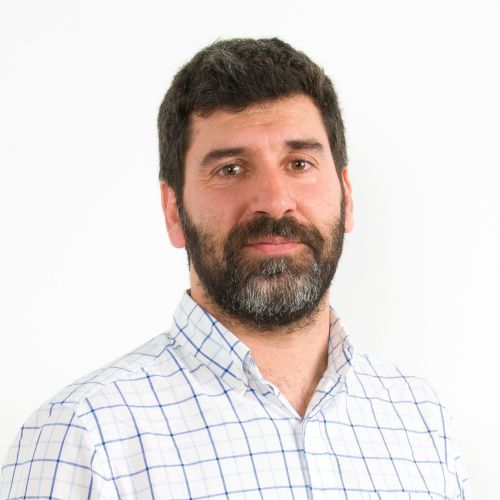18 Sep. 2025 - 12:00
Models and Mechanisms of Prostate Cancer Therapy Resistance
Álvaro Aytes Meneses, PhD, Group Leader at the Institut d'Investigació Biomèdica de Bellvitge, Spain
18 Sep. 2025 - 12:00
Álvaro Aytes Meneses, PhD, Group Leader at the Institut d'Investigació Biomèdica de Bellvitge, Spain

Mireia Castillo, MD, PhD, Molecular and Experimental Pathology Lab
Seminar room
The conviction that profiling of genomic alterations would enable precision oncology has dominated the field for two decades. This dogma is evolving in recent years, recognizing that non-oncogenic dependencies driving plasticity and divergent evolution play a key role in cancer progression and drug response. As different lineages are differentially permissive to transformation by the same genetic alterations, elucidating the regulatory programs implicated in lineage differentiation is paramount to devise therapeutic strategies that reprogram cell identity and drug sensitivity.
Lineage commitment in the developing prostate is tightly associated to a transcriptional network in which the androgen receptor (AR)plays a central role. Malignant transformation of the prostate is hence particularly well suited to study the regulatory networks implicated in lineage plasticity. The development of potent drugs to block AR has been accompanied by the emergence of a spectrum of heterogenous entities, including mixed luminal-basal, anaplastic and neuroendocrine pathologies that eventually progress to a lethal androgen indifferent stage.
The Aytes lab aims at defining the master regulators of the transcriptional networks shaping cell identity in lethal prostate cancer. We foster innovation in regulatory genomics and preclinical modeling to address the challenges derived from the emergence of once considered rare phenotypes as a result of intensive AR blockade early in the clinical management of prostate cancer.
Álvaro Aytes Meneses earned his PhD at the Catalan Institute of Oncology, where he developed colorectal cancer models. As a postdoc in Dr. Cory Abate-Shen’s lab at Columbia University (2009–2015), he focused on prostate cancer, using mouse models and computational biology to generate and integrate transcriptional interaction networks. His work was published in PNAS, Cancer Cell, and Cell Reports. Since 2016, he has led his own research group at IDIBELL.
Register here.
Champalimaud Research (CR) Colloquia Series is a seminar programme organised by the Champalimaud Centre for the Unknown to promote the discussion about the most interesting and significant questions in neuroscience and physiology & cancer with appointed speakers by the CR Community.
